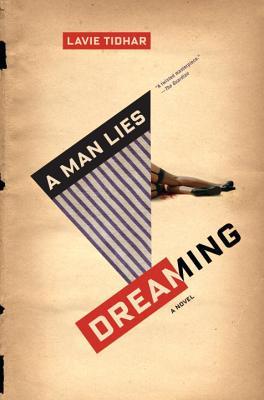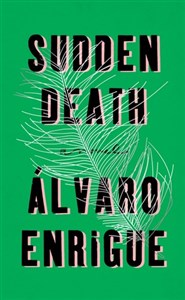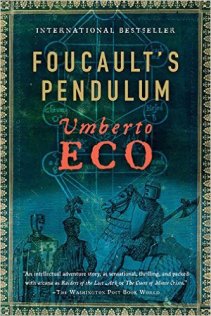 I could tell you that A Man Lies Dreaming by Lavie Tidhar is a pulpy and visceral alternate history noir revenge fantasy, but no blurb can adequately describe what this book is. You can’t talk about it without spoilers, and I pity the person who had to do the blurb on the inside cover. It is vague and it’s vague on purpose. A bitter private detective is living in a world where Hitler’s party is no more, Germany is taken over by Communists, and Nazis are fleeing to England. In another world and time, a man in Auschwitz is dreaming of the world where a bitter private detective is living in a world where Hitler’s party is no more, and Nazis are fleeing to England. With me so far? The man dreaming happens to be a former writer of shund, which in prewar Yiddish theatre was considered to be cheap melodrama, trashy and vulgar. And so the world he dreams of is narrated in the manner of shund, with all the viscerality and vulgarity that it implies.
I could tell you that A Man Lies Dreaming by Lavie Tidhar is a pulpy and visceral alternate history noir revenge fantasy, but no blurb can adequately describe what this book is. You can’t talk about it without spoilers, and I pity the person who had to do the blurb on the inside cover. It is vague and it’s vague on purpose. A bitter private detective is living in a world where Hitler’s party is no more, Germany is taken over by Communists, and Nazis are fleeing to England. In another world and time, a man in Auschwitz is dreaming of the world where a bitter private detective is living in a world where Hitler’s party is no more, and Nazis are fleeing to England. With me so far? The man dreaming happens to be a former writer of shund, which in prewar Yiddish theatre was considered to be cheap melodrama, trashy and vulgar. And so the world he dreams of is narrated in the manner of shund, with all the viscerality and vulgarity that it implies.
Perhaps A Man Lies Dreaming can best be described in its own words:
But to answer your question, to write of this Holocaust is to shout and scream, to tear and spit, let words fall like bloodied rain on the page; not with cold detachment but with fire and pain, in the language of shund, the language of shit and piss and puke, of pulp, a language of torrid covers and lurid emotions, of fantasy: this is an alien planet, Levi. This is Planet Auschwitz.
This pulpy quality might trick the reader into thinking that this is merely a noir/alternate history one reads in an afternoon and forgets the next day. This particular illusion is dispelled quickly as one gets deeper into the novel and sees layers and layers of symbolism within. It is worth reading the historical note at the end to get the full picture of how well-researched and intricate this novel is.
I find it both difficult and easy to recommend it. It is difficult because A Man Lies Dreaming is not a light book. It has plenty of R- and X-rated stuff inside. It is easy because it’s one of the most intense books I’ve read (at one point I told my friend that if I didn’t finish it in two days, my head would probably explode), and it will stay with me for a long time.
It’s been a solid week of amazing historical genre-bending fiction so far, which makes the task of choosing my next book victim quite difficult. The bar is really high.
 This might sound boring, except you get so caught up in Enrigue’s masterful blow-by-blow commentary that you are sucked into the book before you know it. Besides, consider that the tennis game in question is the game between Caravaggio and the Spanish poet Francisco de Quevedo. They are also doing it with a ball made with Anne Boleyn’s hair (shorn off her head before she lost it to the sword). But how did they come to possess such a thing and why are they playing at all? They both seem to be dreadfully hungover and not at all in the mood.
This might sound boring, except you get so caught up in Enrigue’s masterful blow-by-blow commentary that you are sucked into the book before you know it. Besides, consider that the tennis game in question is the game between Caravaggio and the Spanish poet Francisco de Quevedo. They are also doing it with a ball made with Anne Boleyn’s hair (shorn off her head before she lost it to the sword). But how did they come to possess such a thing and why are they playing at all? They both seem to be dreadfully hungover and not at all in the mood. This week has been annoying to say the least, and now Umberto Eco died, so it is not ending on a high note either. What I would really like to do is to spend an entire day tomorrow re-reading Foucault’s Pendulum, the book with which I used to obsessed at one point in my life. Yet for some indescribable reason, I no longer have a copy, so I am going to settle for another example of strange historical fiction, John Wray’s Lost Time Accidents.
This week has been annoying to say the least, and now Umberto Eco died, so it is not ending on a high note either. What I would really like to do is to spend an entire day tomorrow re-reading Foucault’s Pendulum, the book with which I used to obsessed at one point in my life. Yet for some indescribable reason, I no longer have a copy, so I am going to settle for another example of strange historical fiction, John Wray’s Lost Time Accidents. But let’s move on to recent reads. My affair with strange and weird is in full swing, and Beatlebone is so strange and weird, it’s in its own category. First of all, Kevin Barry is a wizard and I want to eat his words with a spoon. Let’s look at few examples:
But let’s move on to recent reads. My affair with strange and weird is in full swing, and Beatlebone is so strange and weird, it’s in its own category. First of all, Kevin Barry is a wizard and I want to eat his words with a spoon. Let’s look at few examples:





